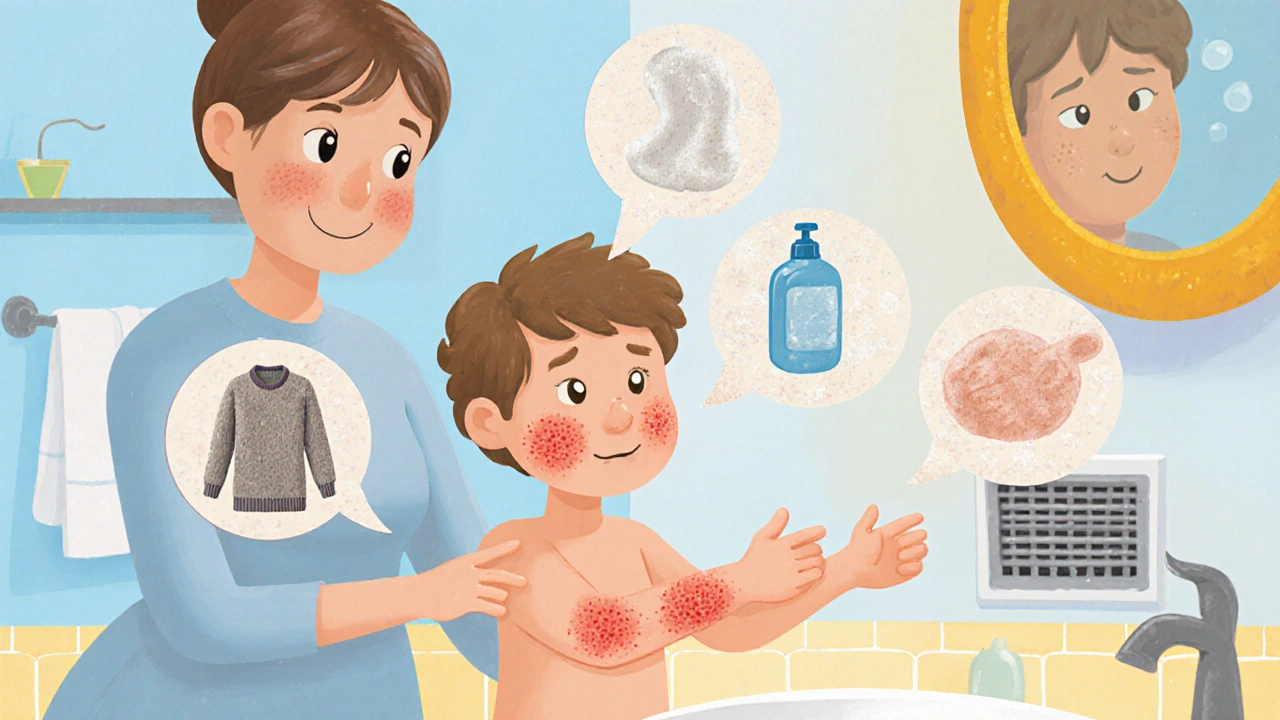Eczema Treatment: Effective Options and What Actually Works
When your skin feels like it’s on fire, itching nonstop and cracking open, you’re not just dealing with a rash—you’re dealing with eczema, a chronic skin condition marked by inflammation, dryness, and intense itching. Also known as atopic dermatitis, it’s not contagious, but it can feel like it’s taking over your life. Millions of people live with it, and most of them are tired of guessing what will help. You don’t need more products. You need to know what actually works—and what’s just wasting your time and money.
Most eczema treatment starts with two things: moisturizing and stopping the itch. Simple? Yes. Easy? Not always. The right moisturizer isn’t just any cream—it’s one thick enough to seal in moisture without irritating your skin. Look for ingredients like ceramides, petrolatum, or glycerin. Avoid anything with alcohol, fragrance, or dyes. Then there’s the medication side: topical corticosteroids are still the go-to for flare-ups, but they’re not for daily use long-term. That’s where calcineurin inhibitors like tacrolimus or pimecrolimus come in—less risk of thinning skin, but they cost more. And if your eczema is severe? Newer biologics like dupilumab target the immune system directly, but they’re injections and require a doctor’s oversight.
What no one tells you enough is that eczema isn’t just about skin. It’s tied to your environment, your stress levels, even your diet. Common triggers include dry air, sweat, harsh soaps, wool clothing, and dust mites. Some people find dairy, eggs, or nuts make things worse—but that’s not true for everyone. Testing your triggers isn’t about elimination diets unless your doctor says so. Keep a simple journal: note what you ate, where you were, what you touched, and how your skin reacted. Patterns show up faster than you think.
You’ll see a lot of "natural" remedies online—coconut oil, oatmeal baths, tea tree oil. Some help. Some don’t. Oatmeal baths can soothe, but they won’t fix the root issue. Coconut oil might moisturize, but it can clog pores in sensitive skin. The truth? There’s no magic bullet. But there are proven paths. The best eczema treatment combines smart skincare, targeted meds when needed, and avoiding the things that make it worse. It’s not about perfection. It’s about consistency.
Below, you’ll find real comparisons and guides on medications, moisturizers, and how to handle flare-ups without overdoing it. No hype. No paid promotions. Just what people actually use and what works in real life.

Hydrocortisone for Eczema: How to Use It safely and Effectively
Harrison Greywell Oct, 20 2025 8A detailed guide on using hydrocortisone for eczema, covering how it works, proper application, side effects, dosage, alternatives, and FAQs for safe, effective treatment.
More Detail